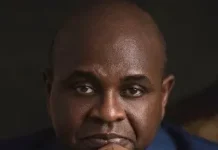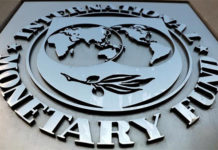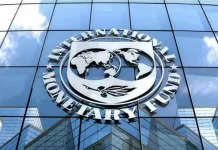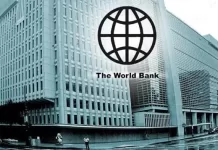With the rise in inflation, increase in unemployment and high rate of poverty in Nigeria, the state of the country’s economy is becoming more and more worrisome.
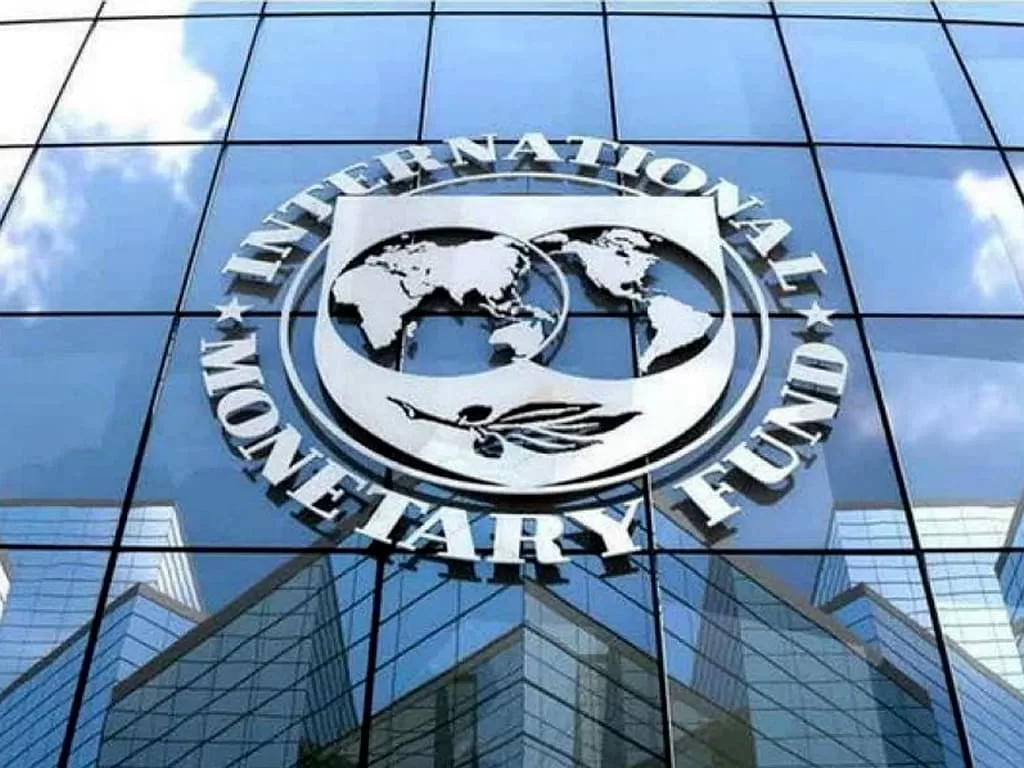
Nigeria’s participation, at the 2023 edition of the World Bank Group, WBG, Spring meetings for the first time ever, appears to have been coloured with policy protest coming from civil society groups.
The Executive Director of Civil Society Legislative Advocacy Centre, (CSLAC), Auwal Rafsanjani, one of the groups from Africa, told journalists that civil society groups in Africa held a session with the Bretton Woods Institutions to discuss issues of accountability and governance in respect of debt servicing.
Read Also: Divorce: 4 Lessons Ladies Can Learn From Achraf Hakimi’s Wife, Hiba
The groups raised a concern with the World Bank and the International Monetary Fund, IMF.
Basically, they are against Nigeria’s incessant borrowings from the two institutions especially the latest borrowing of $800 million.
This was done considering the worsening economic situation of Nigeria amidst continued borrowing.
Deeper Into Debt
According to the group, the borrowing has plunged the nation deeper into debt crises to be faced by generations of citizens that did not benefit from the loans.
He alleged that the funds borrowed were not used for the purpose rather they were taken up by corruption.
In his words: “The Nigerian economy is suffering from many problems, from corruption to mismanagement, misplacement of priority, lack of compliance with our financial regulations.
“Nigeria continues to repay these money (loans) despite the deficit in our infrastructure, in other social sectors that suffer significantly, like almost the collapse of education, healthcare system, and other important aspects of governance like security.
“Yet the Nigerian government is borrowing money to finance subsidy.
“Closely related to this development is the recent pronouncement by the government to borrow and spend over $800 million in the name of subsidy palliative.
Judiciously Utilised
“This is another scam, because in 2020, during the COVID, the Nigerian government approached IMF for a loan of $3.4 billion with a view to cushioning the effects of COVID.
“But what we have seen was that the money was not judiciously utilised, and ordinary Nigerians that were promised palliatives did not see any palliative.
“In fact, because of the official corruption, money was diverted by different agencies and parastatals in the name of palliatives.
“Remember how NNPC came to the National Assembly to testify about the billions they used in the name of COVID palliatives.
“We also remembered the Ministry of Humanitarian Affairs Ministry, how they told the whole nation that, while children were at home, they were doing a school feeding program.
“So, this is how the money borrowed by the Nigerian government and the contribution and donation by international partners and even Nigerian philanthropists disappeared without accountability.
“So, for you to know at the last minute of your regime, you are leaving next month, and you are borrowing $800 million to share without any clear accountability framework, it calls for alarm, worry and concern.
“This is why the Civil Society Legislative Advocacy Center came along with other civil society organisations to the spring meeting taking place here in Washington DC to have a discussion with the World Bank and IMF officials.
“We already met with the directors of the IMF and World Bank, with a few select civil society groups from Africa, which I happen to be one of the groups, discussing our concern on the way and manner in which our country came to borrow money even in deviation from the fiscal responsibility law which clearly states how government should borrow money.
Monitoring How Monies Are Spent
“But they borrow this money, they finance non-economic projects. In many instances, the so-called constituency projects is also taking a large chunk of the money they are borrowing to finance the budget.
“And if these monies are meant for the people of Nigeria, then they must involve non-state actors at least to observe and monitor how these monies are spent.
“Now, the Nigerian government continues to borrow money from all sorts of commercial banks. The worst part of it is that we are borrowing at the highest interest rate which is difficult to repay.
“Even the conventional ones that they earlier want, we are finding it difficult to repay not to talk of those other commercial banks that their charges are very high; their interest rates are very high.”
You Can Also Read: US Journalist Under Attack Over Tinubu’s ‘World Influence’ Article
“So, we have come to discuss with them to express our worries and concern, that the non-transparent spending of money borrowed by our government are of great concern to us, and that they must not continue to give these monies without putting accountability mechanism and also safe reporting for whistleblowers.
No Civic Space For Discussions
“We are also concerned that there is no civic space to discuss the economic management of Nigeria with non-state actors in Nigeria.
“For example, the minister of finance is here, CBN governor is here, so many government agencies are here, but they are not able to have this kind of discussion with non-state actors that are also attending this meeting, unlike what we see with other countries.”
“For other countries, they sit together with their non-state actors like civil society organisations, to discuss on how to even approach the IMF and the World Bank.
“But the arrogance of some few tiny public officials of Nigeria is closing the space for civil society to give a valuable contribution to addressing the economic deterioration in Nigeria”.

